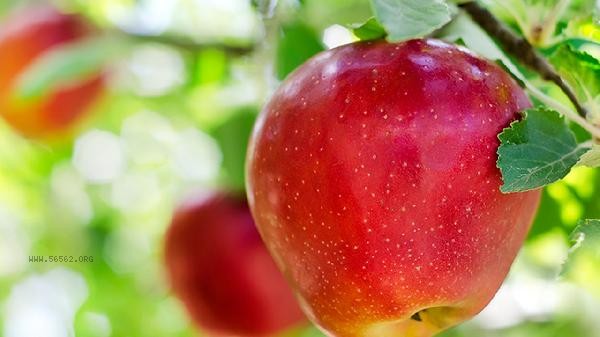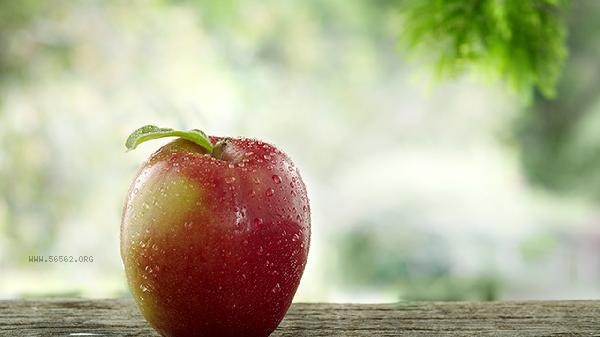Apple chunks can be delayed in oxidation by soaking them in salt water, covering them with plastic wrap, dripping lemon juice, storing them in refrigeration, or vacuum sealing. After being cut open, apples will undergo enzymatic browning when exposed to air, resulting in darkening of color and loss of nutrients.

1. Soak in salt water
Soak the cut apple slices in light salt water for about 1 minute. Salt water can inhibit the activity of polyphenol oxidase. The salt concentration should be controlled at around 3%, and the water should be drained after soaking. This method is easy to operate and does not affect the original flavor of apples, making it suitable for daily household use.
2. Cover with cling film
Tightly wrap the cut surface with cling film to isolate oxygen contact. When wrapping, it is necessary to ensure that there is no gap between the surface of the apple chunks and the cling film, and if necessary, multiple layers of covering can be used. This method can maintain the appearance of apples for 2-3 hours without discoloration, but long-term storage still requires refrigeration.
3. Dropping lemon juice
Citric acid can effectively block the oxidation reaction chain. Add 5 milliliters of fresh lemon juice to every 100 grams of apple chunks and gently mix well. The reducing effect of vitamin C can keep the apples white for more than 4 hours. Children who are sensitive to sour taste or those with excessive stomach acid should reduce their intake as appropriate.

4. Cold storage
Low temperature environment can significantly reduce enzyme activity. Put the apple chunks into a sealed box and place them in a refrigerator at 4 ℃ to delay oxidation for 8-12 hours. Be careful not to mix with strongly scented foods, as refrigerated apples will have a crisper texture.
5. Vacuum sealing
Use a vacuum machine to remove the air inside the packaging bag and completely block the oxidation conditions. Vacuum processed apple chunks can be preserved for 24-48 hours under refrigeration conditions, making them suitable for situations that require long-term storage or outdoor carrying, but require specialized equipment support.

In addition to the above methods, apple chunks should be cut and eaten fresh for optimal nutrition. The pectin and phenolic substances rich in apples are easily oxidized when exposed to air, resulting in the loss of vitamin C and antioxidant components. Using a ceramic knife during processing can reduce the catalytic oxidation of metal ions, and the oxidation rate will accelerate after peeling. It is recommended to keep the skin. Multiple antioxidant methods can be combined in daily life, such as dripping lemon juice before refrigeration, which can effectively maintain the freshness and nutritional value of apples. If you need to make a fruit platter, it is recommended to process the apples last and consume them immediately.









Comments (0)
Leave a Comment
No comments yet
Be the first to share your thoughts!